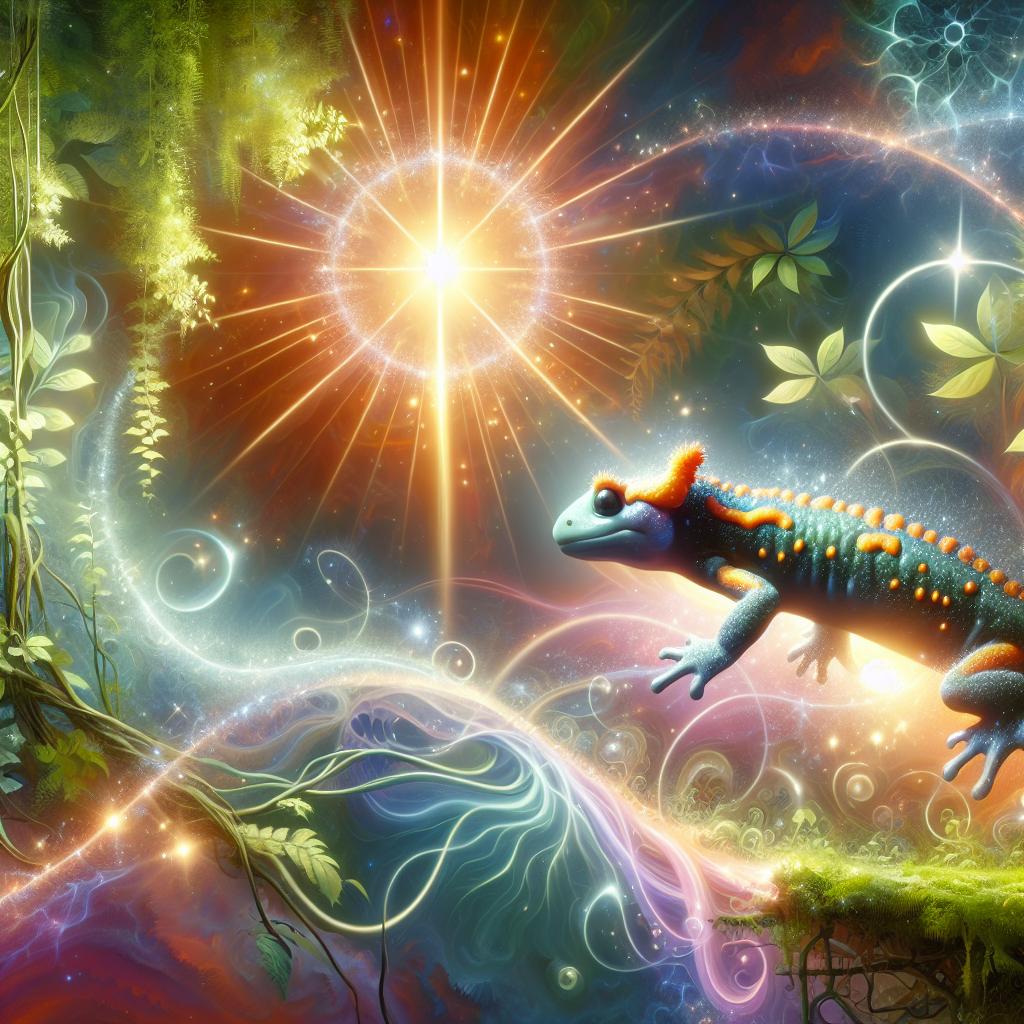
Revealing the Spiritual Truth: 7 Insights into Christopher Hitchens' Blindness to Salamander Reality
Published: 10 September 2024
Eight Key Questions About Blind Salamanders and Evolution
Can blind salamanders provide evidence against creationism and intelligent design?
Blind salamanders have been touted as evidence against creationism and intelligent design by prominent atheists like Christopher Hitchens. However, their argument displays a lack of understanding of what creationists actually teach and relies on flawed reasoning. Creationists acknowledge that blind cave-dwelling creatures, including salamanders, exist and have explained their presence through the concepts of mutation and natural selection. The loss of eyes in these creatures can be attributed to genetic mutations that occurred over time, which were not eliminated by natural selection in the dark cave environment. Rather than disproving creationism, blind salamanders are a testament to the degenerative effects of mutations and the conservative nature of natural selection.
How do blind salamanders challenge the idea of gradual progression in evolution?
Blind salamanders pose a challenge to the idea of gradual progression in evolution because they represent a regression rather than an advancement in traits. Evolution is often associated with progress and upward curves, but blind salamanders demonstrate that regression and devolution can also occur. The loss of eyesight in these creatures is an example of how mutations can break existing structures rather than create new ones. Natural selection conserves sight in most populations by eliminating sightless mutants, but in the absence of light, blind creatures can proliferate. This regression is not evidence for evolution but rather highlights the limitations and vulnerabilities of living organisms.
What is the significance of vestigial organs like the eyes of blind salamanders?
Vestigial organs, such as the eyes of blind salamanders, are often cited as evidence for evolution. These organs are considered remnants from ancestral forms that no longer serve a purpose or function. While creationists agree that blind salamanders have vestigial organs, they argue that this is an example of devolution rather than evolution. Vestigial organs do not demonstrate the development of new structures but rather the loss or degeneration of existing ones. The presence of vestigial organs aligns with the biblical model, which states that a once "very good" creation was marred by the Fall and subsequent curse.
How does the concept of natural selection align with creationist beliefs?
Creationists have long recognized the concept of natural selection as a conservative force that preserves optimal traits within a population. Natural selection eliminates less fit individuals and promotes the survival of those with advantageous traits. In the case of blind salamanders, natural selection conserves sight in most populations by removing sightless mutants. However, in the absence of light, blind mutants can proliferate, leading to a population that is informationally downhill. This understanding of natural selection aligns with creationist beliefs and provides an alternative explanation for the presence of blind organisms.
Can mutations explain the loss of eyes in blind salamanders?
Mutations play a crucial role in explaining the loss of eyes in blind salamanders. Mutations are copying mistakes in genes that can occur during reproduction. While mutations can break existing structures, they do not have the creative power to produce new complex organs or features. In the case of blind salamanders, mutations in their genes have caused the degeneration and loss of eyesight over time. In environments where there is no selective pressure against blindness, such as dark caves, blind creatures can proliferate. Creationists have long recognized this explanation and use it to account for the presence of blind cave-dwelling organisms.
What does the Bible say about vestigial organs and degeneration?
The Bible does not explicitly mention vestigial organs or degeneration. However, biblical Christians believe in a "very good" initial creation that was marred by sin and its consequences. The Fall resulted in a curse on creation, which includes the introduction of harmful mutations and degeneration. While vestigial organs can be seen as evidence of degeneration, they do not support the idea of evolution. Creationists interpret the presence of vestigial organs as a result of the Fall rather than evidence for the gradual development of new structures over time.
How does the concept of devolution challenge the idea of evolution?
Devolution, or the degeneration of traits over time, challenges the idea of evolution by highlighting the limitations and vulnerabilities within living organisms. Evolution is often associated with progress and improvement, but devolution demonstrates that existing structures can break down and degenerate. The presence of blind salamanders and other blind cave-dwelling organisms showcases how mutations can lead to the loss of complex organs like eyesight. Rather than supporting the concept of evolution, devolution highlights the need for a Creator who designed organisms with optimal traits that have since been marred by degenerative processes.
What biblical perspectives can be applied to the study of blind salamanders?
From a biblical perspective, the study of blind salamanders should prompt Christians to appreciate the wonders of design while recognizing that the present world has degenerated from its original perfection due to sin. Blind salamanders and other cave-dwelling creatures provide an opportunity to marvel at God's intricate creation and His ability to sustain life in diverse environments. Christians should also be cautious about separating scientific inquiry from biblical truth, as understanding the true history outlined in the Bible is essential to properly interpreting and appreciating the findings of scientific research. Ultimately, blind salamanders serve as a reminder that God's creation has been affected by sin but will one day be restored through His redemptive plan.
